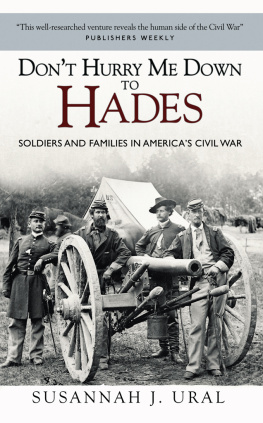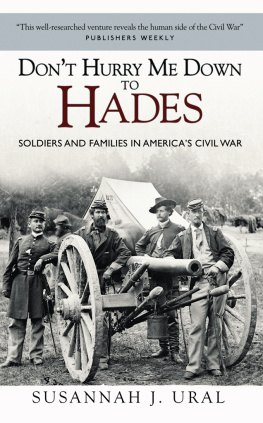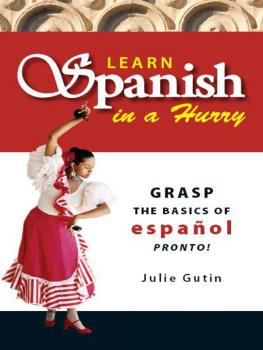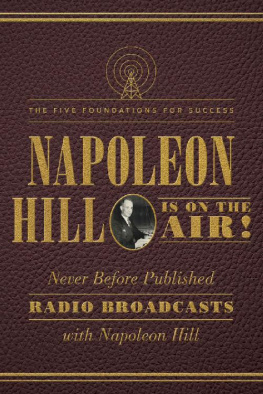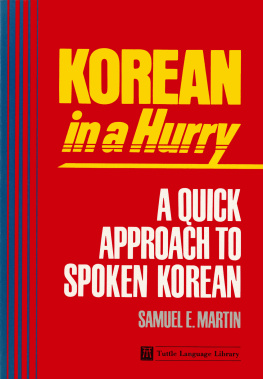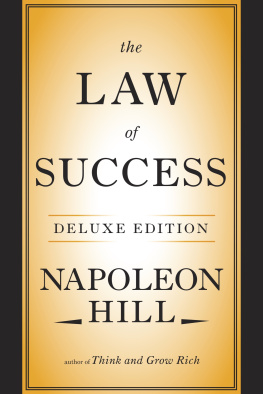Andrew Hill - Be Quick - But Dont Hurry: Finding Success in the Teachings of a Lifetime
Here you can read online Andrew Hill - Be Quick - But Dont Hurry: Finding Success in the Teachings of a Lifetime full text of the book (entire story) in english for free. Download pdf and epub, get meaning, cover and reviews about this ebook. year: 2002, publisher: Simon and Schuster, genre: Home and family. Description of the work, (preface) as well as reviews are available. Best literature library LitArk.com created for fans of good reading and offers a wide selection of genres:
Romance novel
Science fiction
Adventure
Detective
Science
History
Home and family
Prose
Art
Politics
Computer
Non-fiction
Religion
Business
Children
Humor
Choose a favorite category and find really read worthwhile books. Enjoy immersion in the world of imagination, feel the emotions of the characters or learn something new for yourself, make an fascinating discovery.

- Book:Be Quick - But Dont Hurry: Finding Success in the Teachings of a Lifetime
- Author:
- Publisher:Simon and Schuster
- Genre:
- Year:2002
- Rating:4 / 5
- Favourites:Add to favourites
- Your mark:
- 80
- 1
- 2
- 3
- 4
- 5
Be Quick - But Dont Hurry: Finding Success in the Teachings of a Lifetime: summary, description and annotation
We offer to read an annotation, description, summary or preface (depends on what the author of the book "Be Quick - But Dont Hurry: Finding Success in the Teachings of a Lifetime" wrote himself). If you haven't found the necessary information about the book — write in the comments, we will try to find it.
Be Quick - But Dont Hurry: Finding Success in the Teachings of a Lifetime — read online for free the complete book (whole text) full work
Below is the text of the book, divided by pages. System saving the place of the last page read, allows you to conveniently read the book "Be Quick - But Dont Hurry: Finding Success in the Teachings of a Lifetime" online for free, without having to search again every time where you left off. Put a bookmark, and you can go to the page where you finished reading at any time.
Font size:
Interval:
Bookmark:


SIMON & SCHUSTER
Rockefeller Center
1230 Avenue of the Americas
New York, NY 10020
Copyright 2001 by Andrew Hill
All rights reserved,
including the right of reproduction
in whole or in part in any form.
S IMON & S CHUSTER and colophon are registered trademarks
of Simon & Schuster, Inc.
Visit us on the World Wide Web:
http://www.SimonSays.com
ISBN 0-7432-2421-3
To my Mom, for all her love.
To Janice, Alex, and Aaron for all their support.
To Coach, for all his wisdom.
LEARNING
THE SECRETS
The Team with the Best Players Almost Always Wins
Be QuickBut Dont Hurry!
Focus on Effort, Not Winning
Keep It Simple
Make Your Yes Mean Yes
Balance Is EVERYTHING
A Good Leader Is First, and Foremost, a Teacher
Game Time Is When the Coachs Job Is Almost Over
A Great Leader Cannot Worry About Being Well Liked
Great Leaders Give Credit to Others, but Accept the Blame Themselves
Seek ConsistencyAvoid Peaks and Valleys
Fairness Is Giving All People the Treatment They Earn and Deserve
The Team That Makes the Most Mistakes... WINS!
Surround Yourself with Strong, Opinionated People
Teamwork Is Not a Preference, Its a Necessity
Rules Are Made to Be Followed, Not Broken
Concentrate on YOUR Team, Not the Opposition
Adjust to Your PlayersDont Expect Them All to Adjust to You
Failing to Prepare Is Preparing to Fail
Practice Doesnt Make Perfect; Only Perfect Practice Makes Perfect
Be Honest, Direct, and Willing to Risk It All for Your Beliefs
ME AND COACH
BY J OHN W OODEN
T HE P YRAMID OF S UCCESS is the result of my trying to develop something that would make me a better teacher as well as give those under my supervision something to aspire to other than a higher grade in my English class or more points in an athletic contest. In 1934 I coined my own definition of success: Peace of mind which is a direct result of self-satisfaction in knowing you made the effort to do the best of which you are capable. However, after a period of time, I came to the conclusion that since a definition is often difficult for a student to comprehend, something visual would be a more effective communication tool. I then came up with the idea of a Pyramid of Success. I spent as much time as possible over the next fourteen years in selecting those personal traits and characteristics that I think are essential in enabling one to reach success according to my definition. After selecting a trait for each block, much time was spent in getting each block strategically placed in the structure.
Whether in the classroom or on the basketball court, the principles contained in the Pyramid were central to


Ultimately, it is the goal of every teacher and coach that their students take the lessons they have learned in the classroom and on the athletic field and apply them in their lives after graduation. Indeed, a teacher can receive no higher compliment than to see former students integrate those lessons into the fabric of their lives. This book, written by one former student, gives me special pleasure because the author not only studied hard but took the concepts and elements of my teachings and added his own experiences to envision the lessons in ways that go beyond the original teachings. There is nothing more satisfying for a teacher than watching his students make his lessons their own.
I
L EARNING
G ROWING UP as a sports-crazed kid in Westwood, California, I had the chance to watch some of the nations most compelling stars and teams compete in my own backyard. The Dodgers with Sandy Koufax and Don Drysdale, and the Lakers with Jerry West and Elgin Baylor were fun to watch as they battled for world championships, but they were not the most successful teams in town. That distinction belonged to a college team just a couple of miles from my house: During the 1960s and 1970s, Coach John Woodens UCLA Bruins were the most dominant and successful sports program ever seen.
Coach Woodens UCLA basketball teams were a highspeed, classy, Blue-and-Gold winning machine. While its hard to imagine that integration was still an issue in college basketball back then, those Bruins were somewhat in the vanguard, with their perfect blend of black and white, urban and rural, big and small. The starters were a black center from Kansas, two white kids from Southern California, a black guard from Philadelphia, and a Jewish forward born in Brooklyn. UCLA won its first NCAA championship in 1964, two full years before an all-black Texas Western (now University of Texas El Paso) team beat an all-white University of Kentucky team and hastened the recruitment of black ballplayers at every school in the country. The Bruins played with a consistency and controlled passion that seemed a direct reflection of their coach. The culture of Los Angeles in the 1960s was so self-consciously hip that John Woodens provincial Indiana roots made him appear to be from another planet. Unlike the style-conscious L.A. glitterati, he was very secure in who he was and where he came from. In a city where everyone wanted to be cool, this man clearly had no interest in imitating the world of movie deals, cuttingedge fashion, rock music, and air kisses. If Pat Riley was the quintessence of L.A. style as coach of the Lakers in the 1980s, Coach Wooden was its antithesis, bringing to the limelight the solid Midwestern values of substance over Showtime. Even as a young boy I could sense that there was something special about a man like this; John Wooden was cool simply because he didnt try to fit in and conform to the shifting tides of Southern California culture.
This is not to say his teams were boring. The Bruins were built on speed, quickness, a tough man-to-man defense, a withering zone press, and a relentless fast break. Now, there may be some kid in America who grows up dreaming of playing slow-down, highly structured, Princeton-style basketball, but Ive never met that kid. There was something intoxicating and captivating about the pace and attacking style of the Bruins. Many of their games were close and hard fought, but then the Bruins would generate a blistering run that devastated the opposition, the basketball equivalent of a heavyweight boxer knocking out his opponent. I was already a fan before the Bruins won their first national title in 196364, but that season pushed my infatuation to new heights.
Though the players changed through the years, the sense of style and class that came to epitomize UCLA basketball always grew out of the concepts espoused by Coach Wooden. Central to those teachings was his Pyramid of Success, which is familiar to the tens of millions of sports fans who marveled at this remarkable sports dynasty. The Pyramid was Coach Woodens attempt to diagram the key ingredients necessary for personal success (see diagram pages 1011). With a foundation based on qualities like industriousness, friendship, loyalty, cooperation, and enthusiasm, the Pyramid builds to an apex that is capped off with patience and faith. To those who have never met Coach Wooden, it seems almost too corny to be true.
Font size:
Interval:
Bookmark:
Similar books «Be Quick - But Dont Hurry: Finding Success in the Teachings of a Lifetime»
Look at similar books to Be Quick - But Dont Hurry: Finding Success in the Teachings of a Lifetime. We have selected literature similar in name and meaning in the hope of providing readers with more options to find new, interesting, not yet read works.
Discussion, reviews of the book Be Quick - But Dont Hurry: Finding Success in the Teachings of a Lifetime and just readers' own opinions. Leave your comments, write what you think about the work, its meaning or the main characters. Specify what exactly you liked and what you didn't like, and why you think so.



